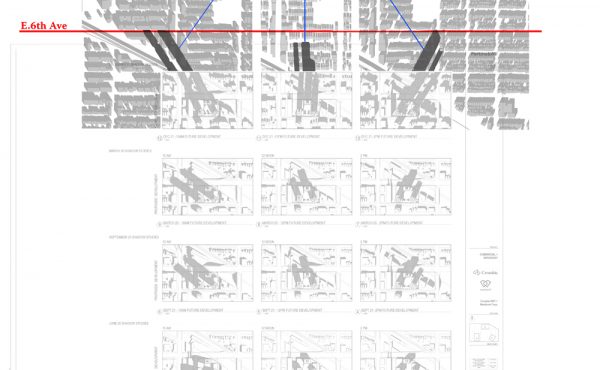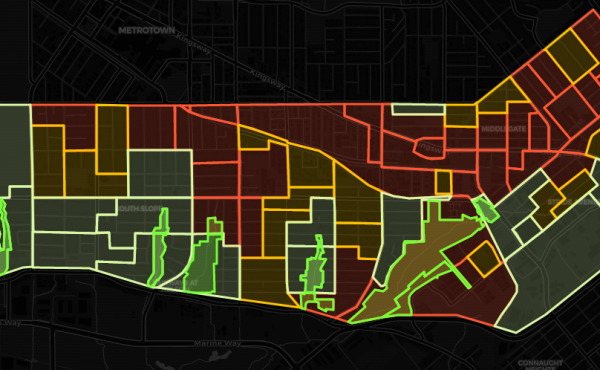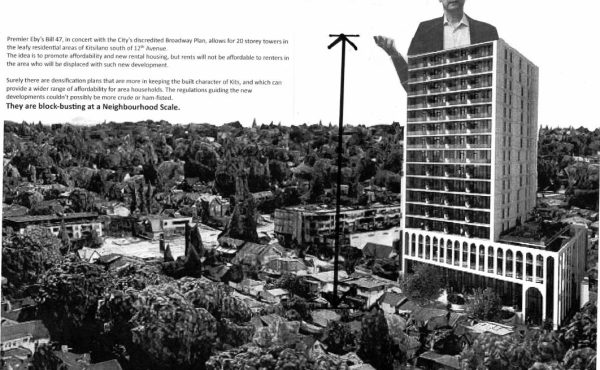 PREAMBLE
PREAMBLE
I will continue to work hard to find new opportunities for what I refer to as “those left behind”. This drives me daily and why I will never give up on the prospect that there are better solutions out there.
I also detest the pejorative, polarizing terms YIMBY and NIMBY. Yet it seems we cannot transcend these labels to find immediate solutions that serve all interests. Why is this? Who is responsible to lead by convening such varying perspectives to generate new ideas? Intentionally remaining in respective “camps” means that political decisions will never reflect deeper solutions to complex problems that contribute to all interests, not just a few.
So, as an intentionally provocative challenge, I offer the following hoping that respective groups can somehow convene and do the hard work necessary to explore new ideas that better respond to multiple interests. This piece is about smarter ideas (for YIMBYs) and sharing (NIMBYs).
********
Why YIMBYs and NIMBYs Need Each Other
Here are Ten consequences for YIMBYs in their support of large land assembly “Bigness”. And symbiotically,
Ten contributions by NIMBYs that can introduce more affordable “Smallness” without blockbusting.
Let’s start with consequences for YIMBYs when they advocate against their own interests.
Consequence #1: The market prefers larger scale redevelopment towards economy of scale, with projects pursuing the assembly of land with escalating costs, supported by a political and regulatory bias towards “bigness”.
YIMBYs, you pay for unnecessary land assembly that must be offset through higher rents and purchase prices.
Consequence #2: As bigger redevelopment projects demand re-zoning, the on-going costs of carrying assembled, un-productive, land escalates due to protracted approval timelines that are almost always politically fraught.
YIMBYs, you pay for the carrying costs of land that must be offset through higher rents and purchase prices. Note: Owners/developers who “land bank” typically enjoy 100% of the proceeds from such escalation. It sometimes pays to not develop too quickly, especially in anticipation of policies that up-zone entitlements.
Consequence #3: Bigger projects demand risk adverse financing from lenders. Most lenders require that, should projects go bankrupt, more parking (underground in deeply excavated, expensive concrete structures) is necessary as they believe it will be easier to unload units with assigned parking if there are financial struggles to complete.
YIMBYs, you pay for excessive parking (north of $70,000/stall) because lenders are reluctant to finance otherwise. YIMBYs, do you own, or want to own, cars?
Consequence #4: Bigger projects must compete against others for market share. Expensive, and thought to be necessary, marketing of “development product” includes fully staffed presentations centres, fancy project naming, renderings and lifestyle videos with soothing musical scores, special offers to friends and families within the inner circle (who can flip units before occupancy), and fancy interiors/appliances thought to be desired by purchasers.
YIMBYs, you pay for these costs (the cost of marketing can exceed the cost of actual design!). YIMBYs, will IKEA cabinets suffice? Do you really self-identify with the name of your building? Are there other choices (DIY) that better express your aesthetic preference, while allowing your own sweat equity within a tight budget? Why are you forced to accept “market generica”, let alone soothing musical scores to perfect lifestyle videos?
Consequence #5: Bigger projects are more profitable by maximizing unit count/addresses. This means smaller and smaller units. Local governments prefer smaller units because more addresses mean more property taxes to collect.
YIMBYs, you pay big bucks for a cramped lifestyle. Will you and your kids sleep in bunk beds for the rest of your lives?
Consequence #6: Smaller units demand nearby recreational amenities for well-being.
YIMBYs, you and your kids also pay for new public recreational amenities (if you are fortunate enough to live in a city that places value on these services) through higher rents and purchase prices that offset property taxes, as well as initial Community Amenity Contributions (CACs) that are ”offered” in exchange for re-zoning approval (aka selling zoning).
Consequence #7: Your higher rents and purchase prices must offset the owner’s property taxes. This means that those who were “born lucky” (let’s overly simplify and call them “NIMBYs”), who were able to acquire housing/land equity starting many years ago, will continue to pay less each year in property taxes because of YIMBY contributions via re-development. Note: Vancouver’s budgeting heavily relies on “presumptive” revenue collected from re-development (CACs) to fund 50% of Capital Projects (this keeps property taxes artificially low for “NIMBYs”). The current development paradigm is addicted to re-zoning, given such enticing CAC revenue, with YIMBYs offsetting in rents and purchase prices.
YIMBYs, you have no choice but to contribute your hard earned $ so that the city can keep property taxes lower for “NIMBYs”. Is this what you are fighting for? Are big re-zonings really the best way to serve your needs? Why do you advocate for the most expensive approval possible?
Consequence #8: Being shackled to higher rents and purchase prices means you miss out on making memories through lived experience, especially in vibrant, complex urban centers where there is so much to enjoy.
YIMBYs, you deserve a slice of the good life. You can no longer afford to pay for non-value-added speculation. You need greater housing choice where you do not pay for land, excessive soft costs and unnecessary parking in your rent or purchase price.
Consequence #9: Higher rents, or purchasing overpriced housing product because land and projects costs are excessive, means you will never build equity for yourself. And if you do not want this, that is ok. Perhaps you would prefer to buy a boat, or maybe recreational property, if your housing costs were more reflective of your income?
YIMBYs, for those interested, you deserve a development system that allows different choices to build personal wealth while also enjoying at least a small slice of the good life.
Consequence #10: And because you pay for speculation that compels overpriced land, unnecessary parking, excessive project costs, and expensive, irresponsible concrete buildings, you will not acquire generational wealth/equity to pass on to loved ones at critical moments in their lives when they most need access to funds (educational or investment purposes). High rents and overpriced condos will leave the future bank of mom and dad with only a few pennies, if that.
YIMBYs, are your kids and grandkids destined to sleep in bunk beds for the rest of their lives while they are caregivers to you within the same space? From “Diapers to Depends”?
And here are contributions NIMBYs can make that will support “those left behind” while strengthening neighbourhoods.
Contribution # 1: Start by becoming more self-aware to recognize that you were “born lucky”. And being born lucky likely means you have substantive, unearned, wealth accrued as “latent” land /structure equity. And by being born at the right time, and by investing your hard-earned dollars over many years, you may have paid, or almost paid, your mortgage. You are in a position to help by taking responsibility to contribute to solutions.
Contribution # 2: Liberate your latent equity through redevelopment in a way that supports your personal/ family legacy while also introducing more affordable housing options, especially larger ground-oriented units for families.
Contribution # 3: Participate in redevelopment without assembling land to eliminate speculation that YIMBY’s must pay for. Enjoy the expertise of those that can efficiently deliver from design concept to occupancy. Recognize the potential for your “NIMBY land” as a long-term strategy for “equity refresh” towards greater social stability (diverse housing for diverse residents to strengthen diverse neighbourhoods).
Contribution # 4: Support your neighbours to do the same, including embracing a wide variety of smaller scale/frontage housing types “next door” including integration/relocation of recognized character structures if preferred by owners.
Contribution # 5: Offer below market housing opportunities to those in need by not “gouging the market” that is currently based on inordinately high rents for expensive developments that paid too much for land assembly, and to construct in concrete with too many cars. This is a philanthropic use of your unearned latent land equity towards the greater good, while still paying off your construction loan through the sale of market unit(s), or as market rental. You will sleep well at night knowing you are incrementally contributing to new, affordable, homes for YIMBYs and their families.
Contribution # 6: Accept the challenges of finding street parking associated with more intelligent, intensive use of low-density land knowing that this small frustration is contributing to a YIMBY finding an affordable home, or a family finding daycare. A small price to pay to keep our neighbourhoods thriving. Otherwise, under the current trajectory, our neighbourhoods will lose vibrancy in favor of on-street car storage.
Contribution # 7: And while a hard pill to swallow, recognize that artificially supressed property taxes, with YIMBYs footing much of the bill otherwise through over priced housing and rents, is simply not healthy. This disproportionate allocation of taxes, not to mention impacts on triple net leases for our mom and pop storefronts, is killing our city. Accepting more balanced approaches to taxation, while not reliant on re-zonings (which block bust) for revenue, should be embraced.
Contribution # 8: Work with YIMBYs to hold elected officials accountable for producing better ideas that respond to shared interests. Work hard to understand why and how “business as usual” is distracting all of us from better solutions that more productively respond to housing and other societal challenges. The current for-profit paradigm of “bigness” is the polar opposite of Good, Fast, Cheap housing.
Contribution # 9: Commit to staying at the housing solutions table to do the necessary hard work to co-develop solutions that will sustain.
Contribution #10: Recognize that the housing conversation must avoid labels that produce polarized discourse (YIMBYs you too), that innovation comes from recognizing, and proactively responding to, real constraint by remaining open minded in conversations that must be more creative, substantive and nuanced.
Please discuss.
***
This feature was originally published on City Hall Watch.
**
Scot Hein is a retired architect, former senior urban designer at the City of Vancouver and the University of British Columbia. He is an adjunct professor of Urban Design at UBC, lecturer at Simon Fraser University and founding board member of the Urbanarium.




